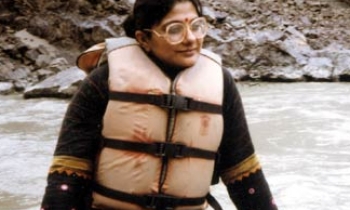Press freedom organisations have called for the release of Straits Times reporter Ching Cheong, who has being tried in a closed-door proceeding in Beijing. His trial on espionage charges began on August 15 and ended late that afternoon without an immediate verdict.
"We have seen no evidence that Ching Cheong has committed a crime, and we call for his immediate release," Committee to Protect Journalists (CPJ) Executive Director Joel Simon said. "We're very concerned that Chinese authorities are using the serious and emotional charge of national security as a pretext to close his trial to the public."

No family members or colleagues were permitted to attend Ching's trial today at Beijing Second Intermediate People's Court, Straits Times Foreign Editor Warren Fernandez told CPJ. Ching was represented by a lawyer provided by his employer.
Ching, a Hong Kong citizen, was detained in April 2005 after travelling to mainland China to seek a transcript of interviews with the late ousted leader Zhao Ziyang, his wife Mary Lau told CPJ. Zhao's criticism of the government's actions against pro-democracy demonstrators at Tiananmen Square in 1989 make him a problematic figure for the current administration.
Authorities later charged the journalist with spying, accusing him of accepting large sums of money from the government of Taiwan to set up "channels for espionage" in Hong Kong and Taiwan. State-run Xinhua News Agency reported that he had confessed to his crimes. Ching has not been permitted to speak publicly since his detention. An espionage conviction can result in life imprisonment.
"We will continue to campaign on behalf of Ching and we will not accept a guilty verdict," Reporters sans Frontières (RSF) said. "The only possible outcome is Ching's release. What credible judicial system would dare to try someone for 'spying,' a crime punishable by death, in just a few hours and with defence rights flouted from start to end? This is an insult to the very idea of justice."
International Federation of Journalists (IFJ) President Christopher Warren said, "While the IFJ maintains its position that Ching's case, based on trumped up charges with no supporting solid evidence, should never have made it to trial, we call on the judicial system to fulfill its duty to justice and procedural fairness by finding Ching not guilty of all charges and order his immediate release."
Singapore Press Holdings, publisher of The Straits Times, released a statement on August 15 expressing hope that the trial, which has been postponed several times, would bring an end to his ordeal. "We sincerely hope for the best outcome and will continue to assist him and his family in all possible ways," it said.

"A 'guilty' verdict for Ching, in a case which should never have gone to trial, will add another black mark to China's already disastrous press freedom record," Warren said.
Other journalists facing conviction and serving jail time in China have received similarly abysmal treatment. In April 2005, Shi Tao, a foreign correspondent for Dangdai Chang Bao was convicted of "leaking state secrets abroad" and sentenced to 10 years imprisonment. The public was denied access to Shi's appeal hearing in June 2005, which was then dismissed without appropriate proceedings.
New York Times correspondent Zhao Yan still awaits verdict after his trial, which was held in secret on June 16 this year. Zhao is charged with "revealing state secrets" and could possibly face the death penalty.
"It seems that journalists in China are guilty until they are proven innocent. China has an appalling track record of treating journalists unfairly before the law, and breaking all international trial standards. The international community will continue to pressure the Chinese Government to cease and desist these atrocious press freedom and human rights abuses," Warren said.
The Hong Kong Journalists Association (HKJA), in association with the Foreign Correspondents' Club, Hong Kong, the Hong Kong Photographers Association, the Ching Cheong Incident Concern Group, Power for Democracy and Civil Human Right Front organised a candle light vigil on the opening day of the trial to show their support for Ching and to call for a fair, just and open trial.
More than 30 journalists are now imprisoned in China, most of them on national security or subversion charges, according to CPJ research.









